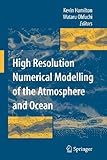Electronic distance measurement an introduction Libro electrónico autor: J. M. Rüeger
Tipo de material: Libro
en línea Idioma: Inglés Detalles de publicación: New York, New York, United States Springer-Verlag c1990Edición: Tercera ediciónDescripción: xvii, 266 páginas ilustraciones 24 centímetrosISBN:
Libro
en línea Idioma: Inglés Detalles de publicación: New York, New York, United States Springer-Verlag c1990Edición: Tercera ediciónDescripción: xvii, 266 páginas ilustraciones 24 centímetrosISBN: - 0387515232
- 9783540515234 (Print)
- 9783642971969 (Online)
- Disponible en línea
Incluye bibliografía e índice: páginas 249-258
1. History.. 2. Physical laws and units related to EDM.. 3. Principles and applications of EDM.. 4. Basic working principles of electronic distance meters.. 5. Propagation of electromagnetic waves through the atmosphere.. 6. Velocity corrections to measured distances.. 7. Geometrical corrections.. 8. Miscellaneous corrections, computations and numerical examples.. 9. Electro-optical distance meters.. 10. Reflectors.. 11. Batteries and other power sources.. 12. Errors of electro-optical distance meters.. 13. Calibration of electro-optical distance meters.. Subject Index
Disponible para usuarios de ECOSUR con su clave de acceso
The book has evolved from the author's continuing teaching of the subject and from two editions of a text of the same title. The first edition was published in 1978 by the School of Surveying, Universi ty of New South Wales, Sydney, Australia. Like its predecessors, this totally revised third edition is designed to make the subject matter more readily available to students proceeding to degrees in Survey ing and related fields. At the same time, it is a comprehensive refer ence book for all surveyors as well as for other professionals and scientists who use electronic distance measurement as a measuring tool. Great emphasis is placed on the understanding of measure ment principles and on proper reduction and calibration pro cedures. It comprises an extensive collection of essential formulae, useful tables and numerous literature references. After a review of the history of EDM instruments in Chapter 1, some fundamental laws of physics and units relevant to EDM are revised in Chapter 2. Chapter 3 discusses the principles and applica tions of the pulse method, the phase difference method, the Doppler technique and includes an expanded section on interferometers. The basic working principles of electro-optical and microwave distance meters are presented in Chapter 4, with special emphasis on modu lation/demodulation techniques and phase measurement systems. Important properties of infrared emitting and lasing diodes are discussed. Inglés
Disponible en línea
Disponible en formato PDF


